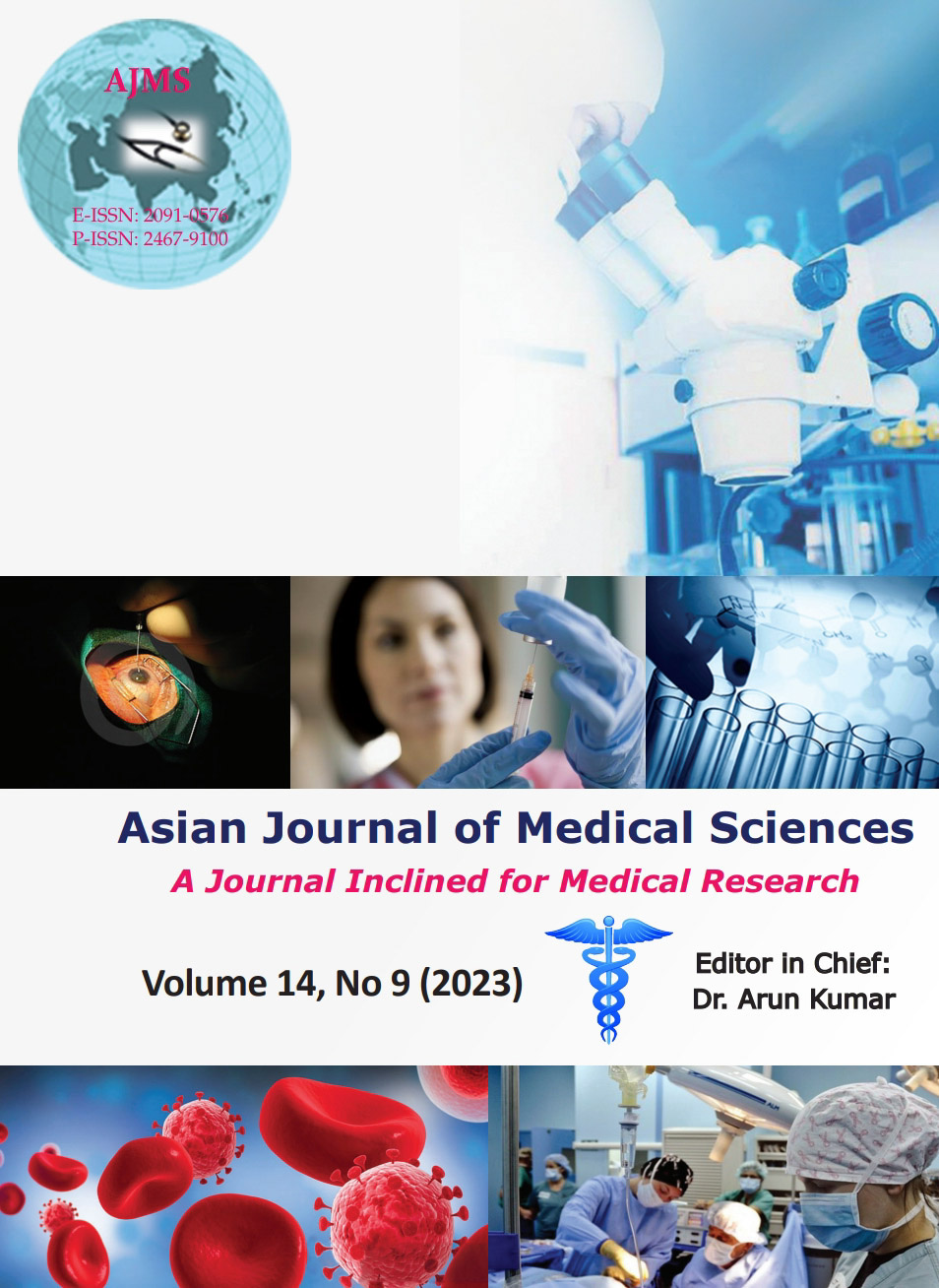A prospective study of post-operative surgical site infections after open gastrointestinal surgeries
Keywords:
Surgical site infection; Routine surgery; Emergency surgery; Surgical site infection organism; Gastrointestinal surgeryAbstract
Background: Surgical site infections (SSIs) are infections of the tissues, organs, or spaces exposed by surgeons while performing an invasive procedure. SSI is one of the most common healthcare-associated infections, but its importance as a health-care priority is not fully understood, and limited work has been published defining the role of surgeons in SSIs.
Aims and Objectives: In the present study, we assess the burden of SSI after gastrointestinal (GI) surgery in a tertiary care hospital in the Central India.
Materials and Methods: The present study was conducted on patients admitted to Gandhi Medical College-affiliated Hamidia Hospital, Bhopal, in the General Surgery Department. The study included 207 patients who underwent emergency/routine GI surgeries between September 2020 and April 2022. Patient characteristics and laboratory data were recorded on a pre-designed form, and all patients were evaluated postoperatively for soakage along with culture and antibiotic testing.
Results: The overall incidence of SSI was 42.51% and its distributions between emergency and routine surgeries were 22.7% and 19.8%, respectively. SSI was predominant in male patients. White blood cell level was significantly associated between emergency and routine surgeries, while Hb level, serum protein level, and the time required for surgery were insignificant. SSI under contaminated dirty wounds was prevalent in both emergency and routine surgeries. Klebsiella was the most commonly isolated organism, followed by Escherichia coli. The commonly susceptible antibiotics have been found to be meropenem, pipzo, amikacin, and imipenem. Commonly resistant antibiotics were amoxiclav, ceftriaxone, linezolid, and doxycycline.
Conclusion: This paper presents the incidence of SSI in the hospital setting of Central India and the factors that may contribute to the high incidence of SSI. Further research needs to be done to better understand how specific risk factors are responsible for post-operative wound infections in open GI surgery.
Downloads
Downloads
Published
How to Cite
Issue
Section
License
Copyright (c) 2023 Asian Journal of Medical Sciences

This work is licensed under a Creative Commons Attribution-NonCommercial 4.0 International License.
Authors who publish with this journal agree to the following terms:
- The journal holds copyright and publishes the work under a Creative Commons CC-BY-NC license that permits use, distribution and reprduction in any medium, provided the original work is properly cited and is not used for commercial purposes. The journal should be recognised as the original publisher of this work.
- Authors are able to enter into separate, additional contractual arrangements for the non-exclusive distribution of the journal's published version of the work (e.g., post it to an institutional repository or publish it in a book), with an acknowledgement of its initial publication in this journal.
- Authors are permitted and encouraged to post their work online (e.g., in institutional repositories or on their website) prior to and during the submission process, as it can lead to productive exchanges, as well as earlier and greater citation of published work (See The Effect of Open Access).




